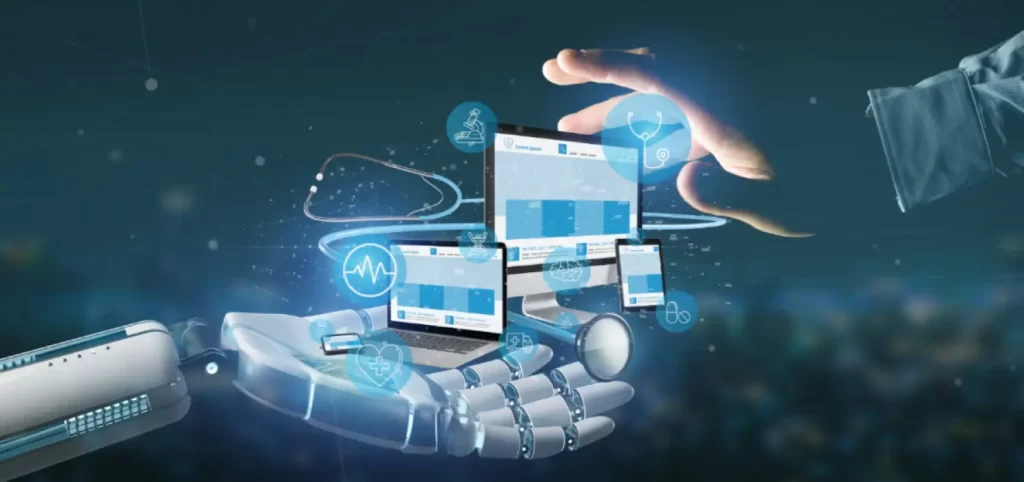A Look at the Top Trends That Are Changing the Way We Use Computers
Introduction
In today’s fast-paced world, the field of computer technology is constantly evolving, bringing forth exciting innovations that are revolutionizing the way we live, work, and interact. From artificial intelligence to quantum computing, the future holds a plethora of technological wonders waiting to be unveiled. In this article, we will explore the top 10 must-have computer technology innovations that are set to change the world as we know it. Get ready to embark on a journey of discovery, as we delve into the cutting-edge advancements that promise to shape our future in unimaginable ways.

Unveiling the Future: Top 10 Must-Have Computer Technology Innovations
1. Artificial Intelligence (AI) – Revolutionizing Automation
Artificial Intelligence, or AI, is a game-changing technology that enables machines to simulate human-like intelligence and decision-making abilities. From chatbots and virtual assistants to advanced data analytics and predictive algorithms, AI is transforming industries across the board. Companies are leveraging AI to enhance customer experiences, optimize operations, and streamline processes. Its potential in revolutionizing automation and augmenting human capabilities is truly awe-inspiring.
2. Internet of Things (IoT) – Interconnecting Our World
The Internet of Things (IoT) is the interconnection of everyday objects and devices to the internet, enabling them to communicate and exchange data. Smart homes, wearable devices, and connected vehicles are just a few examples of how IoT is reshaping our lives. This technology holds the promise of creating a seamless and efficient ecosystem where devices work in harmony, making our lives safer, more convenient, and sustainable.
3. 5G Technology – Transforming Connectivity
As the next generation of wireless communication, 5G technology offers lightning-fast data speeds and ultra-low latency. This innovation is set to revolutionize the way we connect and interact with the digital world. From augmented reality applications to remote surgeries, the high-speed and responsiveness of 5G will unlock endless possibilities, transforming various industries and improving the overall quality of life.
4. Blockchain – Securing Digital Transactions
Blockchain, the underlying technology behind cryptocurrencies like Bitcoin, is more than just a buzzword. It’s a groundbreaking innovation that ensures the secure and transparent transfer of data and digital assets. From financial transactions to supply chain management, blockchain has the potential to eradicate fraud, reduce costs, and increase efficiency, making it an indispensable tool for the future of computer technology.
5. Quantum Computing – Unlocking Unprecedented Power
Quantum computing is poised to take computation to an entirely new level. Unlike classical computers that rely on bits, quantum computers use quantum bits or qubits to process information. This allows them to perform complex calculations exponentially faster than any existing technology. Quantum computing has the potential to revolutionize fields such as drug discovery, cryptography, and weather forecasting, solving problems that were once deemed unsolvable.
6. Extended Reality (XR) – Redefining Virtual Experiences
Extended Reality (XR) encompasses virtual reality (VR), augmented reality (AR), and mixed reality (MR), offering immersive and interactive experiences. From gaming and entertainment to education and training, XR is transforming how we perceive and interact with digital content. With the rapid advancement of XR technologies, the line between the virtual and real world is becoming increasingly blurred.
7. Biometric Authentication – Enhancing Security
Biometric authentication is revolutionizing the way we secure our digital identities. From fingerprint and facial recognition to iris scanning, biometric data provides a unique and secure way to verify individuals. As cyber threats continue to evolve, biometric authentication offers a robust defense against unauthorized access and identity theft, ensuring a safer digital landscape.
8. Edge Computing – Accelerating Data Processing
Edge computing brings computation and data storage closer to the source of data generation, reducing latency and enhancing real-time processing capabilities. This is especially crucial in the age of IoT and 5G, where massive amounts of data need to be processed quickly. Edge computing enables faster decision-making, more responsive applications, and improved user experiences.
9. Energy-Efficient Computing – Sustaining the Future
As the demand for computing power increases, so does the need for energy-efficient solutions. Innovations in energy-efficient computing, such as low-power processors and green data centers, are paving the way for a sustainable digital future. By reducing energy consumption and carbon footprint, these technologies contribute to environmental preservation and a greener planet.
10. Biotechnology and Computational Biology – Advancing Healthcare
The convergence of computer technology and biotechnology is driving breakthroughs in healthcare. Computational biology leverages algorithms and data analysis to understand biological systems, disease mechanisms, and drug interactions. This innovation holds the potential to revolutionize medical research, diagnosis, and treatment, ultimately improving global healthcare outcomes.
Conclusion
The future of computer technology is brimming with promise, as these top 10 must-have innovations are poised to transform the world in profound ways. From the automation revolution powered by AI to the boundless possibilities of quantum computing, each innovation brings us closer to a more connected, efficient, and sustainable future. Embracing these advancements responsibly will unlock a new era of progress and prosperity, ensuring a brighter tomorrow for generations to come.
How will AI impact the job market?
AI will undoubtedly reshape the job market by automating certain tasks and processes. While some jobs may become redundant, AI will create new roles and opportunities, especially in fields related to AI development and maintenance.
What are the security implications of IoT?
The widespread adoption of IoT devices raises concerns about data privacy and cybersecurity. To address these issues, robust security measures, encryption, and regular updates are essential to protect against potential vulnerabilities.
Can quantum computers replace classical computers?
Quantum computers excel at solving specific complex problems, but they won’t replace classical computers entirely. Classical computers will continue to be used for everyday computing tasks, while quantum computers will handle specialized computations.
How will extended reality impact education?
Extended reality has the potential to revolutionize education by offering immersive and interactive learning experiences. Students can explore historical events, visit virtual museums, and engage in hands-on simulations, enhancing their understanding and retention of knowledge.
Are there ethical concerns with biometric authentication?
Yes, there are ethical concerns related to privacy and consent when collecting and storing biometric data. It is crucial for organizations to implement robust privacy policies and ensure transparency in handling such sensitive information.
How does edge computing support IoT applications?
Edge computing reduces the need to transmit all data to centralized cloud servers, minimizing latency and enhancing real-time responsiveness. This is particularly advantageous in IoT applications, where timely data processing is critical for efficient operations.
I hope you find this helpful!
Adams High Tech

